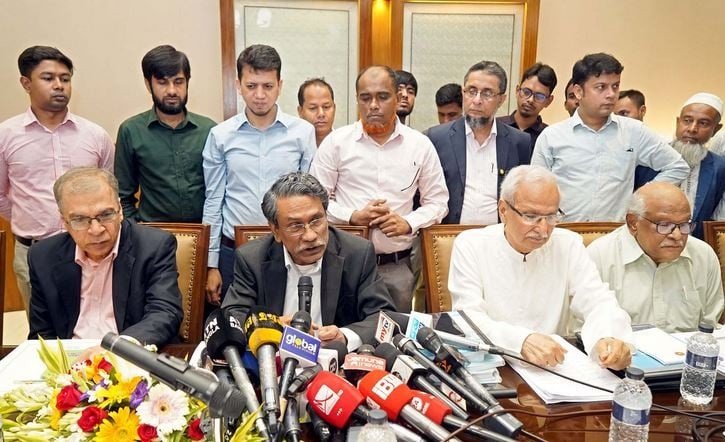Professor Ali Riaz, Vice-Chairman of the National Consensus Commission, praised the National Citizen Party (NCP) for its significant role in dismantling a 15-year-long fascist regime and setting Bangladesh on a path toward democratic reform.
Speaking at the outset of a formal dialogue between the Commission and the NCP, held Saturday morning at the LD Hall of the Parliament Building, Riaz commended the party’s unwavering struggle and sacrifices that helped usher in a new era of hope and transformation for the nation.
“You have successfully overthrown a regime that oppressed the nation like a heavy stone on our chests,” Riaz said, addressing the NCP delegation. “Through your fearless struggle and the sacrifices of your comrades, you’ve laid the groundwork for crucial state reforms.”
The meeting, which began around 10:30 AM, included prominent commission members Dr Badiul Alam Majumder, Safar Raj Hossain, and Dr Iftekharuzzaman, alongside Monir Haider, Special Assistant to the Chief Advisor. The NCP’s eight-member delegation was led by convener Md. Nahid Islam and included party leaders Akhtar Hossain, Samantha Sharmin, Hasnat Abdullah, Nasiruddin Patwari, Sarwar Tushar, Javed Rasin, and Nahida Sarwar Niva.
Riaz emphasized that common ground had been found across multiple reform commissions, with plans to continue dialogues on areas of partial or unresolved consensus. “This is the time for unity—to build a new Bangladesh free from fascism, where democratic institutions flourish and human rights are upheld,” he said.
The National Consensus Commission, tasked with overseeing the transition to democracy, has so far gathered responses from 35 of the 39 political parties it consulted regarding reform proposals. The recommendations—originating from five commissions focused on constitutional, public administration, electoral, judiciary, and anti-corruption reforms—were distributed for feedback in spreadsheet form.
The NCP submitted its official recommendations on March 23, leading to Saturday’s round of discussions.
As efforts toward national reform progress, Riaz expressed hope that enforced disappearances, extrajudicial killings, and all forms of state oppression will become things of the past.



